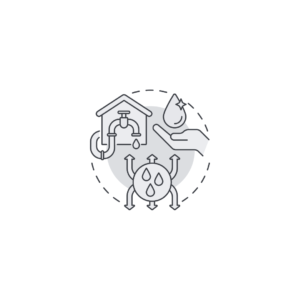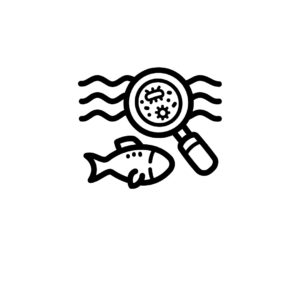Description
A Bachelor of Science (B.Sc) in Water Resource Management is an undergraduate degree program designed to equip students with the knowledge and skills necessary to manage water resources effectively. This program focuses on the assessment, development, and sustainable management of water resources in various contexts, such as agriculture, urban environments, and natural ecosystems.
Curriculum Overview
The curriculum for a B.Sc in Water Resource Management typically includes a range of scientific, technical, and policy-related courses. While specific offerings may vary among institutions, here are common components:
Core Components
Introduction to Water Resource Management:
Overview of key concepts, issues, and principles in water resource management, including the hydrological cycle and integrated water management.
Hydrology:
Study of water movement, distribution, and properties in the environment, covering surface and groundwater hydrology.
Water Quality Management:
Analysis of water quality parameters, sources of pollution, and methods for monitoring and improving water quality.
Environmental Science:
Foundations in environmental science, focusing on ecosystems, biodiversity, and the interactions between water and the environment.
Water Policy and Governance:
Examination of laws, regulations, and institutional frameworks governing water resources, including regional and international policies.
Soil and Water Conservation:
Techniques for managing soil and water resources to enhance agricultural productivity while minimizing environmental impacts.
Irrigation Engineering:
Designing and managing irrigation systems to optimize water use in agricultural practices, including methods and technologies.
Water Resource Planning:
Methods and tools for planning and managing water supplies, including demand forecasting, allocation, and infrastructure development.
Statistical Methods in Water Resource Management:
Application of statistical techniques for analyzing water data and making informed management decisions.
Capstone Project or Field Studies:
A culminating experience that may involve a research project, field study, or internship, allowing students to apply their knowledge in real-world settings.
Career Opportunities
Graduates of a B.Sc in Water Resource Management can pursue various career paths in government, non-profit, and private sectors, including:
Water Resource Manager: Overseeing water resource allocation, usage, and sustainability in various settings, including agriculture and urban planning.
Hydrologist: Studying the distribution, movement, and properties of water in the environment, often conducting research to support water management decisions.
Environmental Consultant: Advising organizations on best practices for water management, compliance with environmental regulations, and sustainability initiatives.
Water Quality Specialist: Analyzing and recommending improvements for water quality in freshwater systems, including treatment and pollution control strategies.
Irrigation Specialist: Designing and managing systems for efficient water use in agricultural settings, focusing on maximizing crop yields while conserving water.
Water Policy Analyst: Analyzing water policies and recommending improvements to influence legislation and governance related to water resources.
Research Scientist: Conducting scientific research on water-related issues, contributing to knowledge and advancements in water resource management.
Environmental Educator: Teaching communities, businesses, or schools about sustainable water practices and the importance of water conservation.
Further Education
After completing a B.Sc in Water Resource Management, graduates may choose to pursue further studies, such as a Master?s degree in Water Resource Management, Environmental Science, Hydrology, or related fields. Advanced education can open up opportunities for higher-level positions in research, policy development, and specialized water management roles.
If you have any questions about the Bachelor of Science in Water Resource Management program, potential career paths, or related topics, feel free to ask!









